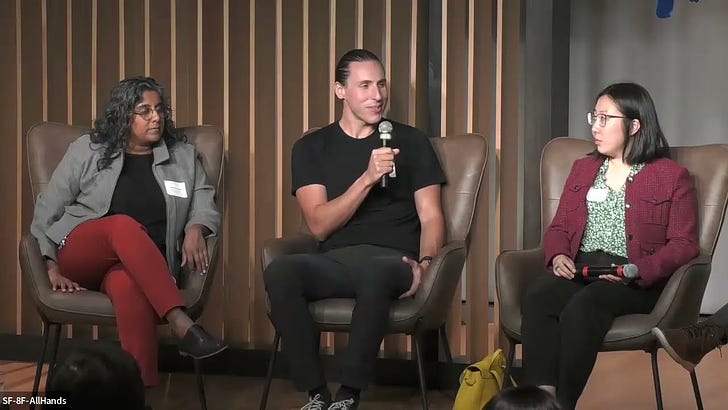How to Become a Product Manager in Life Sciences
A panel with leading experts in life sciences product management
In a recent Bits in Bio event, experienced product managers in the field of life sciences shared their experiences and advice. The panelists included Grace Tharmarajah, Jack Morel, Mace Cheng and Masaki Yamada, with Vega Shah as the moderator. Below we summarize the key takeaways from this panel on both career pathways and impacts of product managers in biotech companies. You can watch a recording of the live event below or access the script.
The key takeaways from this event:
Starting in product management: Many people end up in product management by chance. For example, Grace went from a business development role to managing products because her company reorganized, and Masaki moved from engineering to managing products because he wanted to keep working in startups but in a different role. Their stories show that there isn't just one path to becoming a product manager.
Roles and challenges: The job of a product manager can vary a lot depending on where you work. In small startups, a PM might have to fill many roles, from understanding what customers need to figuring out the technical specifications to eventually build the product. In larger companies, the job involves more planning and working with bigger teams. The size of the company can also indicate the need for building scalable processes. The panelists talked about how moving from being a team member to leading a team requires different skills, like supporting others and building a team that works well together. Ultimately with the goal to make sure there is internal alignment to get the product shipped.
Life sciences background: The experts had different views on whether you need a background in science to manage products in this field. While it's not always necessary, understanding the science can help you make better decisions and communicate more effectively with customers and scientists. At the end of the day curiosity for science and an ability to dive deeper into the technical nitty gritty will serve any product manager well.
Why hire a PM? Product managers play such an important role in taking a product from an idea to market. They must constantly validate a market need for the product and be prepared to pivot when needed. They gather feedback, decide on the product's features, and help guide the team through the development process. This is especially important in science and biotech, where developing a new product can be very complex and costly.
Learning and growing: There was also discussion about how to get into product management and grow in your career. Taking on projects that include aspects of product management in your current job, learning from others, and sometimes taking formal courses or bootcamps can help. But a lot of learning comes from doing the job and facing challenges along the way.
Adjusting to market changes: Finally, they talked about how product development in biotech is responding to financial challenges in the industry. Companies are becoming more focused on making sure their products really meet a need in the market and are cost-effective. This might mean changing how they develop products or finding smaller, valuable parts of a larger project that can be sold earlier.
Becoming a product manager in the life sciences is a journey that can start from many different places. It involves learning a lot on the job, understanding both the science and the market, and being able to lead and support a team through the challenges of developing new products.
Resources and Further Reading
Communities
BiB Product Channel https://bitsinbio.slack.com/archives/C034Z4G2NKX
Women in Product https://womenpm.org/
Deb Liu, CEO of Ancestry speak on product management and offers a newsletter via https://debliu.com/
Lenny’s Newsletter for PMs
Luke Timmerman https://timmermanreport.com/about-luke-timmerman/.
Reddit Product Management https://www.reddit.com/r/ProductManagement/.
Courses
Stanford PM course https://online.stanford.edu/programs/product-management-program.
Berkeley Haas PM course https://executive.berkeley.edu/programs/product-management.
Resources for product templates
Pragmatic institute https://www.pragmaticinstitute.com/
Gitlab company handbook has templates, including one for business requirements https://handbook.gitlab.com/handbook/business-technology/pmo/pmo-governance/#business-requirements-document-brd






This is helpful!
It is very needful to know about product manager. I am hearing initially about the product manager. Thank you